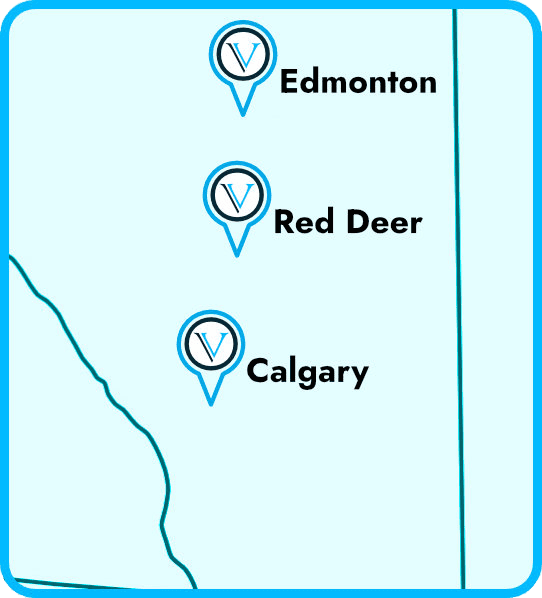
What we term the “New Estate Administration Act” actually came into force in Alberta in June 2015.
The laws encoded in the Estate Administration Act govern the duties of administrators, executors and trustees who are tasked with managing estates. Within the Act, they are referred to as “personal representatives” of the decedent — the most commonly used term now in Alberta.
As well as outlining the duties of personal representatives, the New Estate Administration Act helps to explain the rights of beneficiaries, what happens when someone dies without a will, how and when a will may be challenged in Alberta and makes other provisions that simplify the estate administration laws.
Let’s take a closer look at the main changes that the Act addresses.
Learn More → What will happen if you die without a will in Alberta?
Clarifying the duties of the personal representative
Since the new Estate Administration Act came into being, all personal representatives in Alberta have similar powers and responsibilities and must carry out similar tasks and duties. These apply equally to executors with or without a Grant of Probate and administrators who have applied to the court and received a Grant of Administration.
Even if no personal representative is named in a will or no will was left, similar duties and responsibilities apply to the estate administrator.
Personal representatives must act in place of the deceased person to effectively administer the estate, with the same powers over their property as the deceased would have.
The new Act includes a schedule that specifies the main tasks and responsibilities of a personal representative. These are summarized as follows:
- File for the death certificate
- Identify and locate the property and debts of the deceased’s estate
- Secure the assets
- Manage and administer the estate
- Create an estate bank account
- Provide specific notices to family members, beneficiaries, the Public Trustee, and other parties
- Pay all debts and obligations of the deceased
- File the final tax return
- Distribute the deceased’s property by transferring or selling assets as required by law
- Obtain a release from beneficiaries
- Keep and maintain accounts, which must be provided to the estate’s beneficiaries
The New Estate Administration Act also outlines the duty of personal representatives to act promptly when distributing the estate, with the honesty and diligence of a prudent person, following the instructions in the will as closely as possible and communicating as necessary with the beneficiaries.
What are the rights of beneficiaries in Alberta?
Under the new Estate Administration Act, beneficiary rights are clarified, including their legal rights to challenge a personal representative in the event of misconduct.
For instance, if the personal representative fails to perform a core task, such as providing accurate accounts or details about the estate administration process, a beneficiary is legally entitled to apply to the court for a remedy.
The actions open to the court in such cases include:
- Requiring the personal representative to perform the duty
- Imposing conditions on the personal representative
- Removing the personal representative
- Revoking the Grant of Administration or Grant of Probate
- Making any other appropriate order
Other changes with the new Estate Administration Act
The Estate Administration Act in Alberta replaced the previous Administration of Estates.
Compared with the previous Act, the new one has simplified many of the terms used as well as the main instructions for personal representatives and beneficiaries of the estate. The duties of personal representatives/executors/administrators and the rights of beneficiaries have been clarified (already covered).
A couple of other important changes were also introduced…
Protecting the interests of dependents of the estate
Another major change was that the new Act protected the rights of the dependents of a deceased’s estate.
Ultimately, the new Estate Administration Act of Alberta, like its predecessor, honours people’s freedom of choice after they pass away. They can distribute their assets as they wish.
However, the Act also creates the provision that dependent family members must receive adequate support from the estate. Furthermore, it provides a path for a remedy for such beneficiaries if the personal representative does not adequately carry out their duty towards them.
So, not only can dependent family members expect to receive the deceased’s property on death if there is no will but if a will fails to make adequate financial provisions for them, they can apply to the court for financial support from the estate.
Clarifying who can administer an estate in Alberta
The new Act also clarifies who can apply to be administrator of an estate if there is no will. In this case, priority is given to the closest family members in the following order:
- Spouse or adult interdependent partner of the deceased
- Children of the deceased
- Grandchildren of the deceased
- Any descendant other than a grandchild
- Parent of the deceased
- Siblings of the deceased
- Nieces or nephews (if they are beneficiaries)
- Next-of-kin (if beneficiaries)
- A person with an interest in the estate due to a relationship with the deceased
- A claimant against the estate
- The province of Alberta
Those who are lower on the priority scale may only apply to be the administrator if those above them on the list are unwilling or unable to fulfill the role.
The process of applying to be an administrator in Alberta requires the filing of surrogate forms with the Court of King’s Bench. The responsibility comes with all of the aforementioned tasks and duties of personal administrators, including publishing a notice to claimants, keeping beneficiaries informed of progress, and so on.
The estate administration process in Alberta can be challenging unless you have prior experience and the necessary financial skills. Personal representatives can be held personally liable for any mistakes.
If you need help with executing an estate, get legal assistance starting with an initial consultation with an experienced estate lawyer at Vest Estate Lawyers.

We currently have three offices across Alberta — Edmonton, Calgary, and Red Deer. However, we serve the entire province of Alberta. We also have the infrastructure to work with any of our clients virtually — even the furthest regions of Alberta.
Call us toll-free at 1-877-448-3131 to get routed to the best office for you or contact us online to schedule an appointment.
We also have a dedicated intake form to help you get the ball rolling. Our intake team will review your specific case and advise you on the next steps to take and what to expect moving forward.
Our offices are generally open 8:30 a.m.—5:00 p.m., Mon—Fri.


Roni Kohut
PARALEGAL, LEGAL ASSISTANT
Bio Coming Soon

